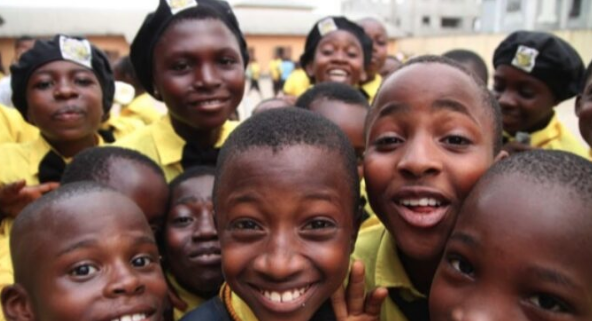The United Nations Children’s Fund (UNICEF) says the recent violent attacks in some parts of Nigeria have disrupted the learning of more than 1.3 million schoolchildren.
In a statement to mark the International Day of Education, Cristian Munduate, UNICEF representative in Nigeria, said there is a need for collaborative efforts to improve school safety in Nigeria.
Munduate said only 6,000 schools met 43 percent minimum standard of safety in learning environment in Nigeria.
She said education is crucial to advancing social and economic growth, adding that many children in Nigeria do not have access to education.
“A recent evaluation indicates that, on average, only 43% of the minimum standards for safe schools are being met in about 6,000 assessed schools,” the statement reads.
“This finding particularly highlights challenges in ensuring the safety of school infrastructure and in mitigating risks such as violence, conflict, and natural hazards.
“While Nigeria has shown a commitment to creating safe school environments through endorsing the safe schools declaration and developing the minimum standards for safe schools, there is room for further progress.
“On this important day, we are reminded of the collective responsibility we share in safeguarding the educational environment for every child.
“The theme of the 2024 international day of Education, ‘learning for lasting peace,’ reminds us of all of the crucial role that education plays in promoting peace and stability.
“It serves as a reminder to all stakeholders – including federal and state governments, development partners, civil society, communities, and educators – of the importance of providing safe, secure learning environments.
“Education is a key driver of gender equality, economic growth, and social development, sadly it remains inaccessible to many Nigerian children.
“Their educational journey is often disrupted by attacks on communities and schools, including the abduction of students.
“These challenges are particularly acute for adolescent girls, potentially stalling the progress made in girls’ education in Nigeria.
“Recent attacks on schools, particularly in the north-east and north-west regions in 2021, have led to learning disruptions for over 1.3 million children, necessitating precautionary school closures. This highlights the urgency of addressing school safety comprehensively.
“UNICEF calls for a multi-sectoral approach to improve school safety, informed by the performance of states on the minimum standards for safe schools.”
She urged the government to adopt comprehensive planning and allocate adequate resources for school safety in states battling insecurity.











